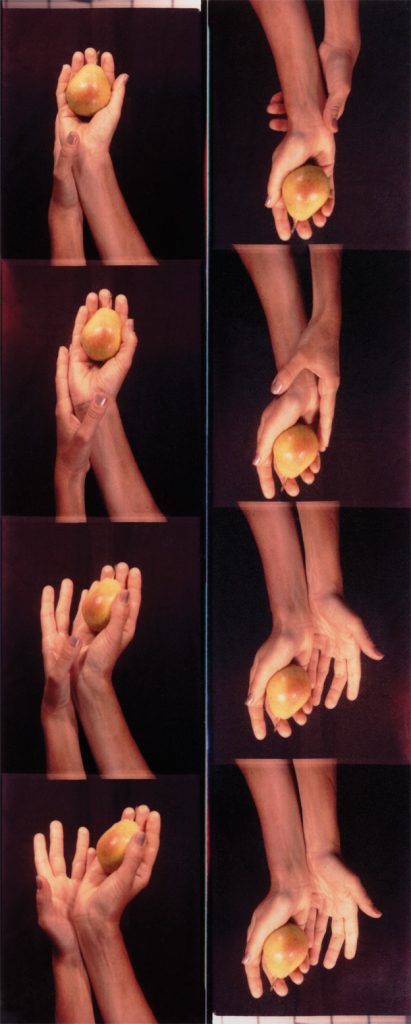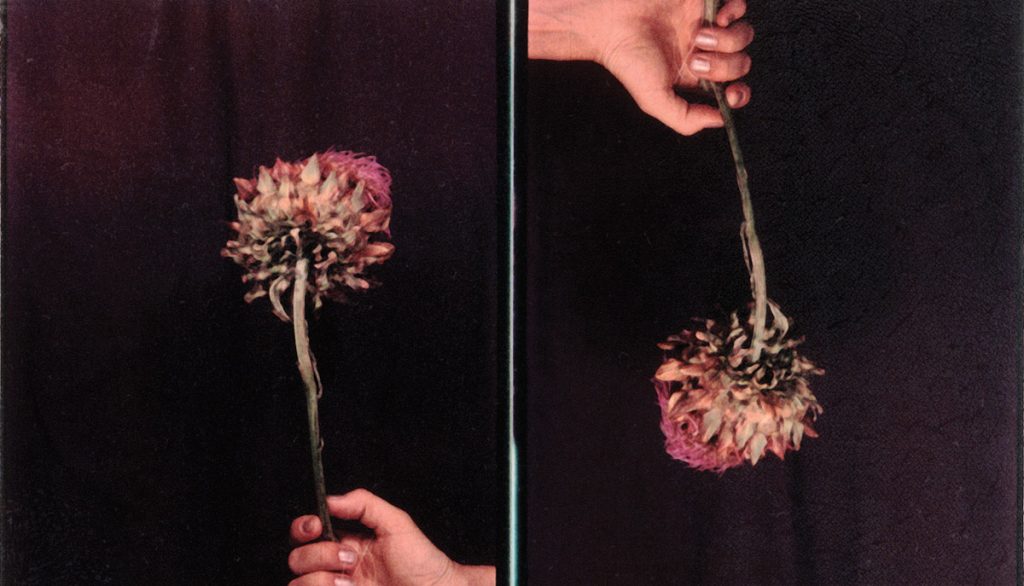Before becoming one of the great world religion scholars of our time and a self-proclaimed “freelance monotheist,” Karen Armstrong had given up on religion. Raised in England in the years following World War II, Armstrong became a Roman Catholic nun in the order of Society of the Holy Child Jesus when she was still a teenager. After seven painful years, Armstrong left the church, frustrated and fed up with what she felt was an overly dogmatic institution.
Following her unhappy experience with Catholicism, Armstrong spent the next 15 years distancing herself from religion, a system she felt had failed her. Then, following the success of her first book, Through the Narrow Gate (1981), a memoir of her tormented years as a nun, Armstrong moved to Israel in 1984 to make a documentary for a British television network on the life of Saint Paul. It was in Jerusalem that she encountered Judaism and Islam for the first time, and her interest in religion was restored. As she observed Jews, Muslims, and Christians living in close proximity to one another Armstrong noted the profound similarities between the core teachings of the three religions and their shared vision for a more compassionate world.
After her experience in Jerusalem, Armstrong went on to become a respected scholar of world religions, publishing over 20 books, including The Gospel According to Woman (1986), A History of God (1993), Buddha (2001), Muhammad: A Prophet For Our Time (2006),The Case for God (2009), and, most recently, Twelve Steps to a Compassionate Life (2010). In February of 2008, Armstrong was awarded the TED (Technology, Entertainment, and Design) Prize, which grants recipients $100,000 to put toward realizing a wish. Armstrong’s wish was to create a Charter for Compassion, a document she hoped would transcend religious, ideological, and national differences and help to restore the message of the Golden Rule in the world. The charter was first drafted online by the public, then finalized during a meeting in Geneva by the Council of Conscience, a multifaith group of 18 religious leaders. In the fall of 2009 the final Charter for Compassion was unveiled, and to date over 75,000 people have signed the document.
Last November, Tricycle editors Rachel Hiles and Sam Mowe met with Armstrong while she was in New York to speak at a TED event hosted by the United Nations.

How did you first conceive of the Charter for Compassion? The charter came into being after I won the TED Prize, which gives you a wish for a better world. I had long been frustrated by the fact that the religions of the world, which all have a compassionate ethos at the heart, haven’t been making a major contribution to one of the biggest tasks of our time, which is to build a global community where people of all persuasions can live together in peace and harmony. In fact, religion is often seen as part of the problem. So I asked TED to help me create, craft, propagate, and launch a Charter for Compassion that would restore compassion to the heart of the spiritual, religious, and moral life and make it an active force in the world. The charter was written by hundreds of thousands of people online on a multilingual website in Arabic, Urdu, Hebrew, English, and Spanish, and then it was composed by a council of 18 people representing six major world religions.
Seventy-thousand people have already signed the Charter. Yes, but equally important is the fact that we have at least 150 partners worldwide who have been doing this kind of work for a long time and have incorporated the charter into their program. These groups represent practically every region of the globe, and they’re all translating the message of the charter, which is fundamentally a call for action rather than just the incitement of a feeling, in order to make it an active force in their particular locality. The Ethiopian partner—the ambassador for Ethiopia here at the UN—declared April 5 to be Golden Rule Day, and we hope to celebrate this every year in order to encourage educators, members of the media, and journalists to think about compassion and what it means.
Our partners in Seattle, the Compassionate Action Network (CAN), declared Seattle to be the first city of compassion. They’re working out in practical terms what that means in the 21st century, especially in terms of environmental ethics and business ethics for the city. This isn’t the end of it; they’re working out how to call other cities worldwide to join them in this endeavor. My dream is that young people in all these cities can start emailing each other, breaking down those barriers of ignorance, building friendships, and creating an international network of cities dedicated to exploring the ethos of compassion.
We’re also putting together a package to help guide people through interfaith communications. I’m working with people who’ve stepped forward to help in Pakistan and the Middle East. These are individuals who have believed that compassion is the way forward and are working out the best ways to integrate the compassion into these difficult trouble spots.
How do we get the charter into the hands of the people in the most volatile parts of the world—the areas that need it the most? We need it, too. I’m often accused of preaching to the choir or preaching to the converted. I don’t mind doing that at all, because the choir isn’t singing. If all the people who said “We believe in compassion” really worked to bring it about, we could change the world. But in fact, the choir is lulling its choristers and not doing anything. The extremists that we’re up against—I have no hope of converting them; they’ve gone too far. But if we all got active, really active, beyond saying, “Yeah, I believe in compassion,” we could make a difference, everyone in their own sphere. I can’t issue dictates as to what this has to be, but if you’re a lawyer, how do you become a compassionate lawyer? Politician? Or businessman, banker, caregiver, bus driver? How do you make the world a more compassionate place? We need to cultivate a global attitude. That’s why the Twelve Steps end with “Love your enemies”—because unless we start treating all peoples, all nations, as we wish to be treated ourselves, we’re not going to have a viable world to hand down to the next generation.
Is compassion the highest common denominator between the world religions? The religions are not all the same—they have significant and revealing differences. That’s what’s wonderful about them. But what they all say, what they’re all in agreement about, is that there’s something very wrong with your spirituality if it does not result in compassion. If it results in unkindness and hatred and violence and belligerence, you’ve lost it. I can have faith that moves mountains, but if I lack charity it’s nothing. If the Golden Rule is practiced as Confucius said, all day and every day and not just when we feel like it—not just doing your good deed for the day, as we say, and then returning over the next 23 hours to selfishness and unkindness as usual—but all day and every day, you break down that ego. It’s ego that keeps us back from the enlightenment that’s called nirvana or brahman or God.
Does the method for cultivating compassion affect the quality of compassion? No. Compassion, as Confucius said, is not something that’s quantifiable. Unless you do it, you don’t know what it is. Unless you do it all day, every day, you don’t know it any more than a dancer can explain at first how she pirouettes across the room. It takes practice and years of discipline. Those who have experienced it say that it brings you into a deeper dimension of your humanity.
Does the motivation behind cultivating compassion—whether it’s to get into heaven, or achieve enlightenment— matter? You don’t do it to get it. If you’re doing something to get it, you’ve lost it. It’s not something you get; it’s something you give. So if you’re going to do it to get something and you’re only going to be motivated until you get it, that’s not compassion. This is a lifetime’s work. When I was in Seattle for the proclamation of the Charter I talked about the Twelve Step program, and they said to me, “Great, we’ll have graduation programs, ceremonies every six months when someone’s become compassionate.” I said, “No. No. No.” That is something that never ends: our selfishness, our desire to preserve ourselves at all costs to get something, rather than just to give without receiving something in return. This is something we hardly ever achieve. But if we practice it to the last gasp, then perhaps we’ll have made the world a better place.
Do you think that compassion and capitalism can coexist? It’s difficult. Capitalism has created great things, and living here as we do in this sort of privileged existence, we benefit from capitalism. I’ve been able to travel around the world because of capitalism. But the capitalism that says, “It’s all got to be for me and what I can get” or “What’s the motivation for this?” will not enable us to create a viable world where we can bring up our children and grandchildren in peace.

And capitalism relies on the suffering of others. Exactly. We have to be very much aware of that. Existence is dukkha, suffering: this is the meditation for our world. We should care about where we buy our products and who made them and what suffering they’re enduring. While we’re enjoying ourselves, people in other parts of the world don’t even have clean water. In some parts of the world people are suffering from eating disorders, while there are others who simply don’t have enough to eat. This is a terrible business. We should feel it in our souls as a problem and as something that keeps us awake at night, but in a productive way, so that we don’t just sink into despair but instead ask, “How can we make this better?” There aren’t easy answers. We have to engage with the problems instead of just throwing up our hands and saying it’s too difficult. This is what the great thinking of our time should be engaged with. When I got the opportunity for this TED Prize wish, I thought, Let’s at least bring compassion back to the table, because people are so ignorant about it, they don’t even know what compassion means. People think it means pity or feeling sorry for people.
Your new book is broken down into twelve steps. Are any of the steps inspired by what you’ve learned from Buddhism? The mindfulness chapter was influenced by Buddhist teachings, as were many of the exercises in the book. The lovingkindness meditation is basically the spine of the book: you have to keep making space for the other in your mind, and that’s hugely important. Each of the religious traditions has its own particular brilliant take on compassion, and the Buddhist brilliant take is its psychological relevance. Our brains are actually changed by Buddhist meditations.
I loved writing my biography of the Buddha, and it was one of the things that helped to put me on the path to the Charter of Compassion. After reading about the Buddha, I realized how compassion was absolutely key. I see the Buddha as the star of the axial age—easily the most advanced, from what we know. My encounter with the Buddha, with the Buddhist tradition, is only just starting. I’ve still got a lot to explore, but already it gives me a sense that religion is possible, that compassion is possible. During my rather unhappy experience with Christianity, I didn’t get the sense that it was a very compassionate religion. But now I look back and I see—as a result of an encounter with the Buddha, with Confucius, with the Upanishads—I see now what the Christians were trying to do, and I see how they were really doing it in their own way.
I read a quote this morning that said something along the lines of “The best religion can do is inspire wonder, not explain the mystery.” Yes, and to make you ask questions. Religion should not be giving you explanations or quick answers, which is what we kind of expect—we type something into Google and up comes the answer. Instead, religion should help you to live with questions for which there are no answers, like cruelty and pain and suffering and death, capitalism and injustice. It should teach us to live with these questions so that whatever horror or sorrow or dukkha is going on out there, you can live with it creatively, not turn your back to it.
Practicing compassion requires a very creative and active engagement with the world. Yes, and you see this in the life of the Buddha. After enlightenment, he is tempted to stay there under the tree. Should he go and teach? No, he says it’s going to be too upsetting and depressing. Then Brahma comes down and kneels before him and says, “Please, save the world. Look at it. Look at it.” God kneeling to the enlightened man, it’s a wonderful image. So the Buddha looks at the suffering world—just as we’re looking here at New York with the eye of a Buddha—and he spends the next 40 years tramping around trying to find a cure for the suffering of the world. The religious experience is not about getting a lovely warm glow and then basking in it. The religious experience should impel you back onto the street, just as I’ve been impelled out of my nice quiet study to come and travel endlessly on airplanes from place to place. I’ve hardly been at home for the last three months. I’ll be home next month, and then the next seven months I’m traveling constantly again. But if people keep asking you for help, then you must give it to them rather than thinking, “No, I’d much rather be sitting in my study having that lovely warm glow.”
Charter for Compassion
The principle of compassion lies at the heart of all religious, ethical, and spiritual traditions, calling us always to treat all others as we wish to be treated ourselves. Compassion impels us to work tirelessly to alleviate the suffering of our fellow creatures, to dethrone ourselves from the center of our world and put another there, and to honor the inviolable sanctity of every single human being, treating everybody, without exception, with absolute justice, equity, and respect.
It is also necessary in both public and private life to refrain consistently and empathically from inflicting pain. To act or speak violently out of spite, chauvinism, or self-interest, to impoverish, exploit, or deny basic rights to anybody, and to incite hatred by denigrating others—even our enemies—is a denial of our common humanity. We acknowledge that we have failed to live compassionately and that some have even increased the sum of human misery in the name of religion.
We therefore call upon all men and women to restore compassion to the centre of morality and religion • to return to the ancient principle that any interpretation of scripture that breeds violence, hatred, or disdain is illegitimate • to ensure that youth are given accurate and respectful information about other traditions, religions, and cultures • to encourage a positive appreciation of cultural and religious diversity • to cultivate an informed empathy with the suffering of all human beings—even those regarded as enemies.
We urgently need to make compassion a clear, luminous, and dynamic force in our polarized world. Rooted in a principled determination to transcend selfishness, compassion can break down political, dogmatic, ideological, and religious boundaries. Born of our deep interdependence, compassion is essential to human relationships and to a fulfilled humanity. It is the path to enlightenment, and indispensable to the creation of a just economy and a peaceful global community.
To learn more about the Charter for Compassion, visit charterforcompassion.org.
Thank you for subscribing to Tricycle! As a nonprofit, we depend on readers like you to keep Buddhist teachings and practices widely available.
